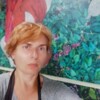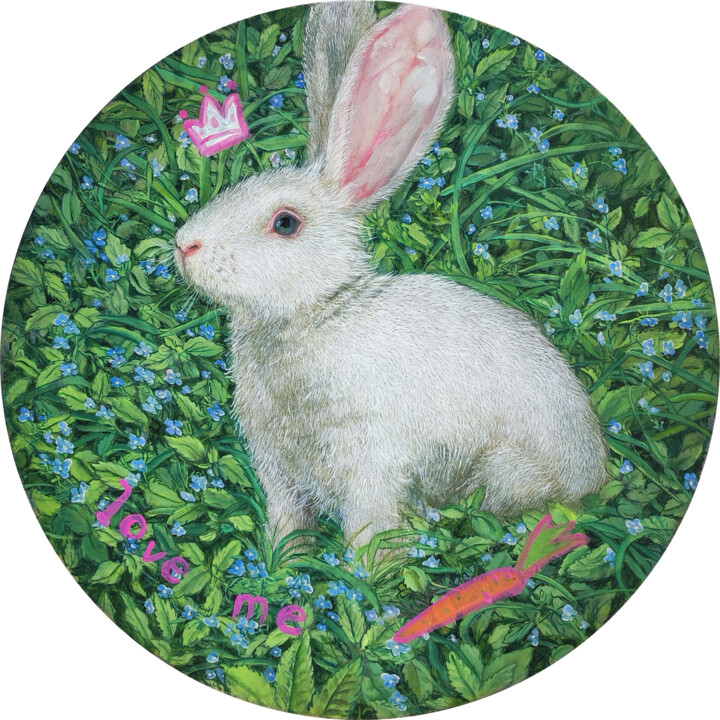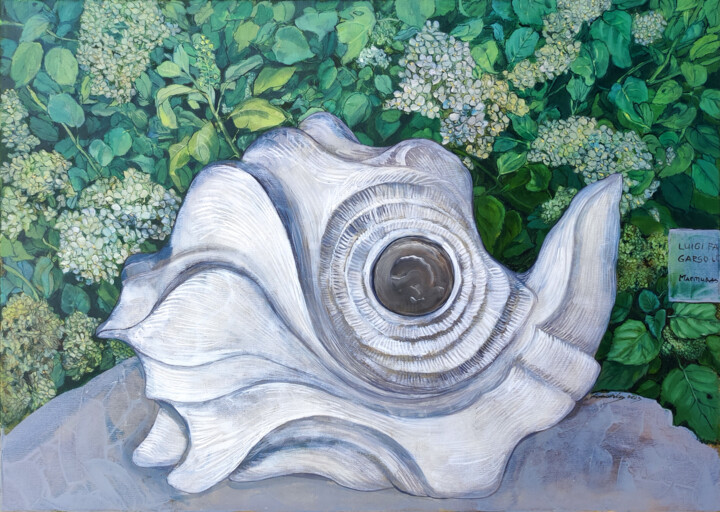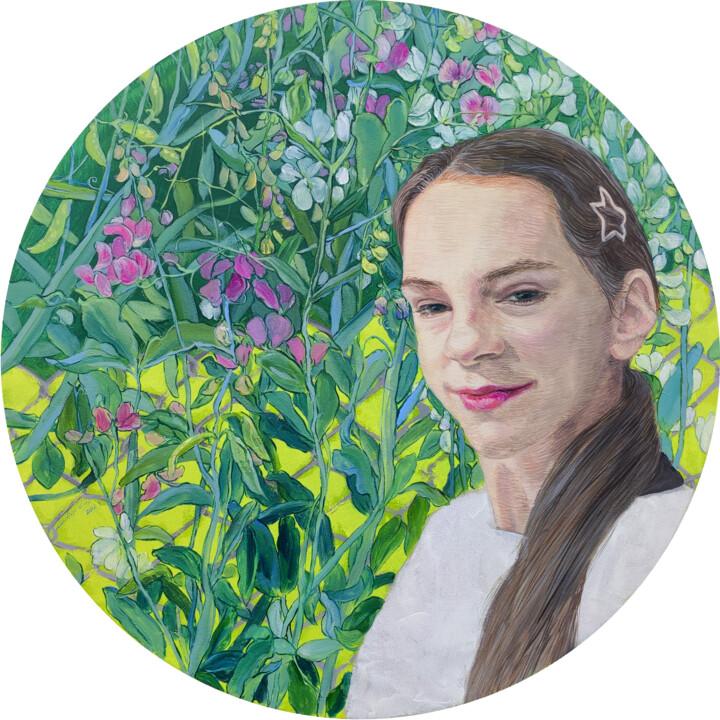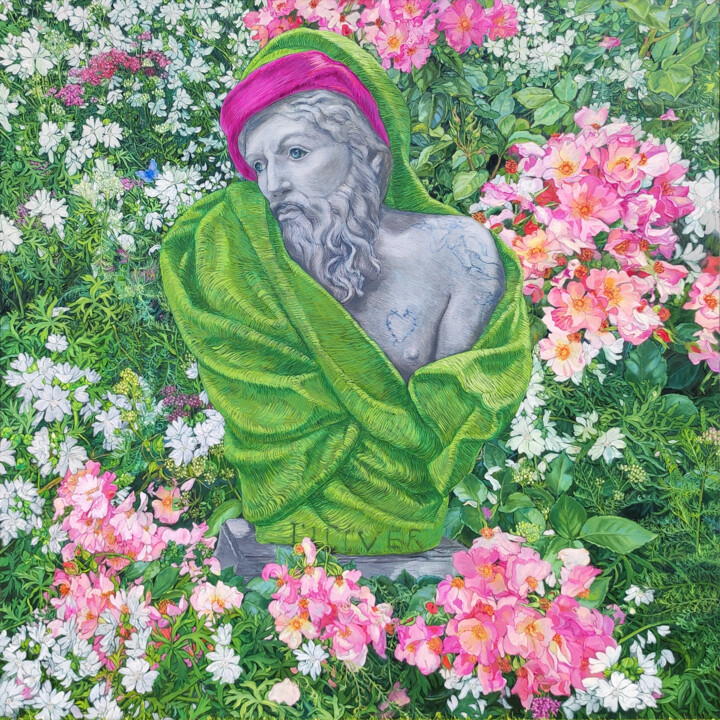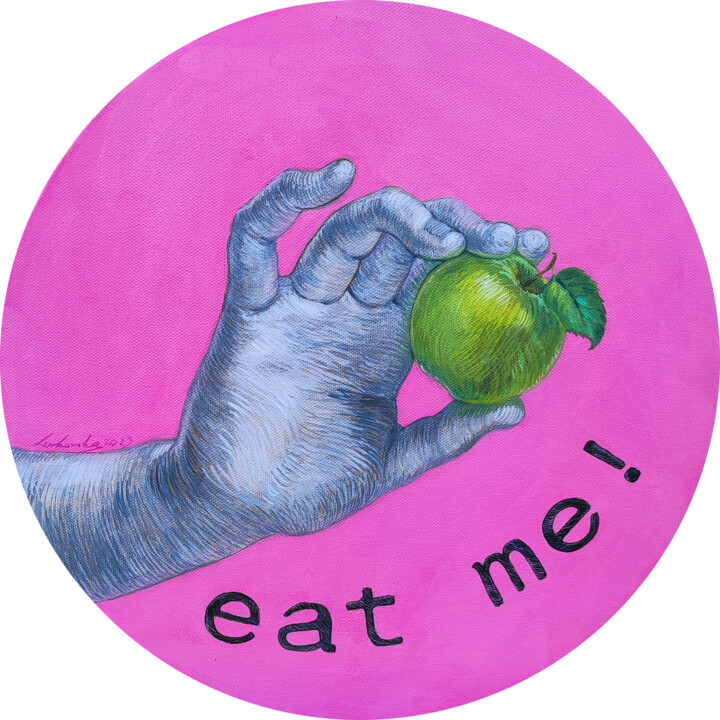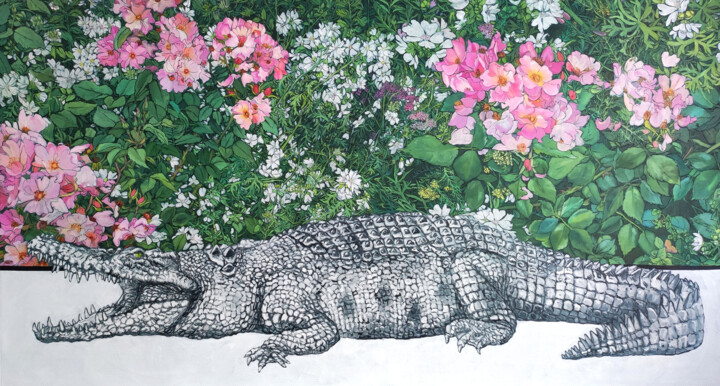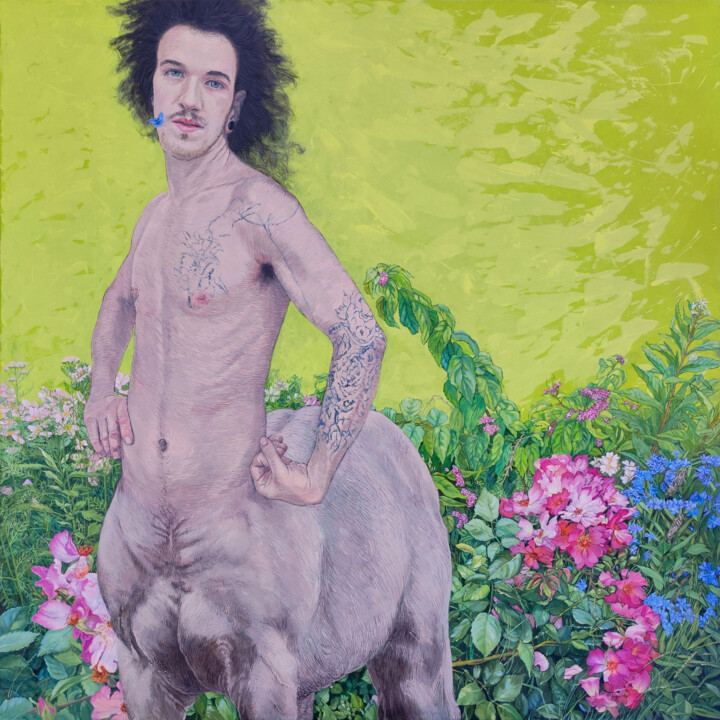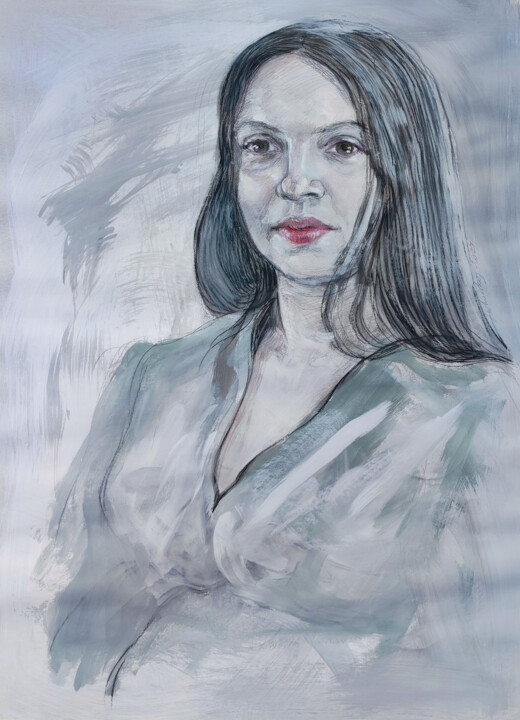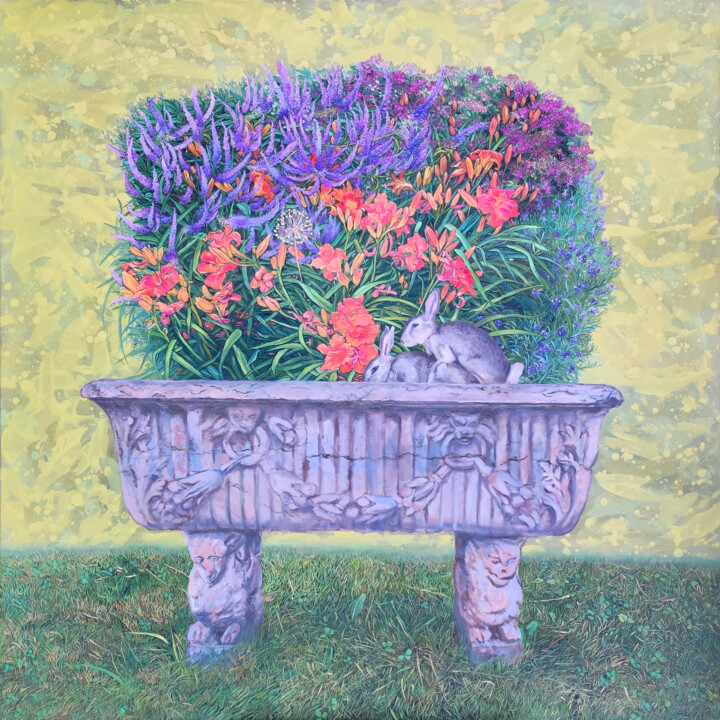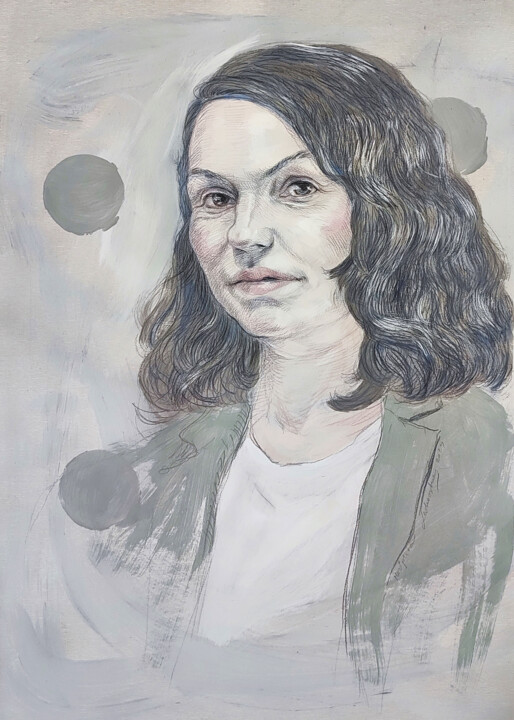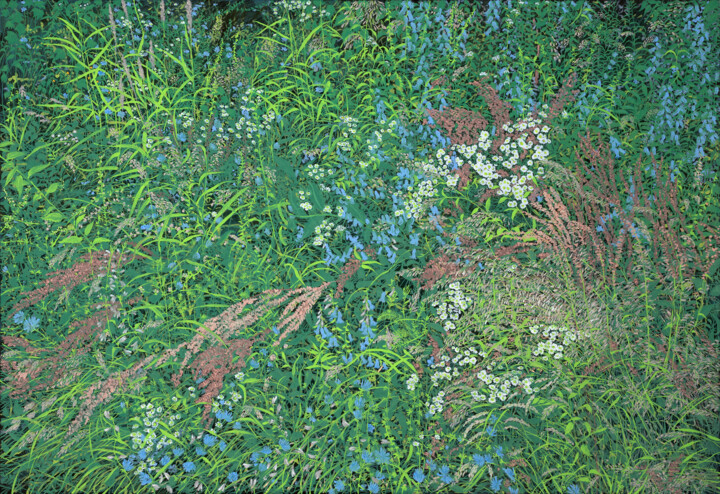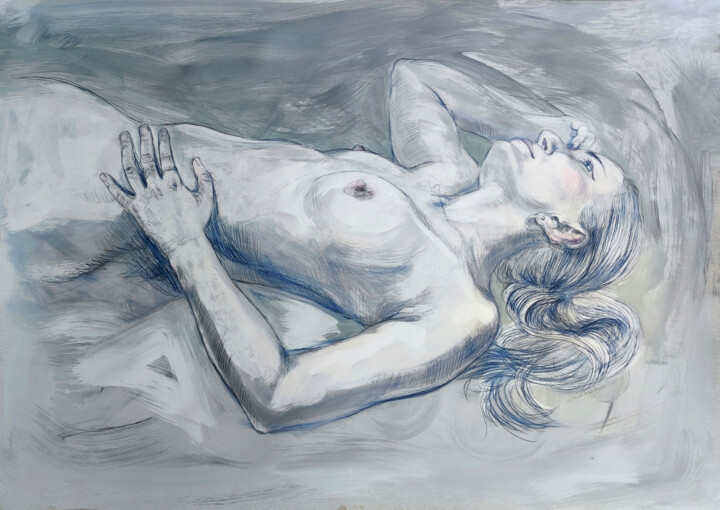What made you approach art and become an artist? (events, feelings, experiences...)
It's probably all about my mother. When I was 4 years old, she saw something in my drawing that was different from other children's drawings and decided that I would be an artist. From that moment on trips to exhibitions, museums, private drawing classes, subscriptions to art magazines, competitions, etc. began. At 16 I tried to escape from that, but she turned to professional psychologists for help... I guess I had no choice😉. And that's probably what I like to do the most.
What is your artistic journey, techniques and subjects you have experimented with to date?
In college I was in a class with gifted boys, and although I was always in the top three, I wasn't sure I could make a living from easel art, so I chose to be a designer. First as a fashion designer, then I trained as a decorator and later as a wallpaper designer and digital muralist. Only in the last 3 years have I decided to focus all my attention on painting and drawing. My experience as a designer is certainly reflected in my work: I love details... color is important to me, but perhaps most important is my vision of beauty told through brush and pencil. Perhaps there are two main themes for me - that of nature, such as the sea, trees, grasses, roots and man in the background of nature with its eternal existential question.
What are 3 aspects that differentiate you from other artists, making your work unique?
It's hard to say, because I am generally a realist painter... on the one hand I love details, but on the other I choose simplicity in narration. At the same time, I think it's hard to confuse my work with that of other artists, it has its own character. It may also be in my choice of subjects and the way I paint in oil - in some places it looks like a large graphic work with so much detail in it. There's a combination of flat color, detail and realism.
Where does your inspiration come from?
From walking in the woods, digging in the garden, reading books and watching movies, listening to music, Instagram and Facebook, talking to friends and personal experiences. All of this somehow comes together in my head and some kind of idea of future work emerges.
What is the intent of your art? What visions, sensations or feelings do you want to evoke in the viewer?
I want to convey my sense of reality: my world is complicated enough on the inside, and I see that the world outside is even more complicated and beautiful. Every day I see the living become dead, but out of this something new is born. In a way, even though I have not been to Japan, I am close to their philosophy of nature worship. I see myself as part of a larger natural system, much larger than social reality. At the same time, I am touched by questions of the temporal and the eternal, and I am looking for forms of how to make sense of it through art.
What is the process of creation of your works? Spontaneous or with a long preparatory process (technique, inspiration from art classics or other)?
I have a lot going on inside, on the outside it looks like absolute idleness. And then I sit down and draw the composition on. Most of the time I know exactly what I want to see in the end result.
What techniques do you prefer? If yes, can you explain it?
I like to paint large works in oil, because it is an amazingly malleable material with enormous possibilities. And it allows me to do the work slowly.
For the drawings I like to mix techniques, to use gouache and pencils. Gouache does not like corrections but it gives a very matte finish and is the color I used when I was a child so psychologically, I have more freedom with these works.
Are there any innovative aspects to your work? Can you tell us which ones?
You know, when I look at contemporary art, I get the impression that a conservative, masterfully executed work is gradually becoming innovative.
Do you have a format or medium that you are most comfortable with?If yes, Why?
In my youth, I started as a miniaturist, and everyone predicted my fame in that direction. And then I had to work on large exhibition walls, and I changed my view of myself. Now I like to work with medium sized pieces, but I see a trend towards larger formats. I work with roller, sponge, big brushes, palette knife and at the end I paint very fine details.
Where do you produce your work? At home, in a shared or private studio? And within this space how is your production organized?
For many years I rented a small studio for my oil work and then I realized that I wanted to have my own space, which would necessarily have a garden. So, I bought a garden house in the countryside and set up my studio in the former garage. That's where I come to work every day. During the breaks I go out into the garden, and in the summer, I take my easel outside and paint in the fresh air.
Does your work lead you to travel to meet new collectors, for shows or exhibitions? If so, what do you gain from it?
When I worked as a wallpaper designer, I attended several international design fairs every year in my line of work. But there I participated as part of a team. Last year I participated for the first time with my own booth at the art fair in Vilnius. This year I started going to art fairs abroad. In summer I visited Copenhagen and in October I am going to Le Carrousel du Louvre in Paris. So far, I only look at the level of artists and organization. I think next year I will participate in some international art fair with my works. Even if you're participating only as a spectator, it still affects your creativity in a certain way. You see other artists' work, analyze it, find new tendencies and ways of expression. It's enriching.
How do you imagine the evolution of your work and your figure as an artist in the future?
Despite the fact that I love Lithuania very much, I understand that it is a small country with limited resources and in order to grow into something bigger it is necessary to go beyond this nice and quite cozy world. To go out there, where there are more opportunities, diverse talents and of course competition. Because competition spurs us as individuals to run faster and jump farther. At the moment I set myself a goal with each job to overcome myself a little, to do something bigger and harder than before. For the foreseeable future I can see my work in the largest galleries in the world.
What is the topic, style, or technique of your latest artistic production?
I continue and develop the theme of the eternal and the fleeting, using images of ancient sculptures placed in flowering meadows; I play a little with mythology in a modern interpretation.
Can you tell us about your most important exhibition experience?
You see, the most important exhibition experience was related to design work. In painting so far, I am a novice artist 😊. I like how I am developing, how the volume and quality of my work is increasing. I would like to have sculpture or three-dimensional works in my exhibitions as well. I think that's ahead of me.
If you could have created a famous work in the history of art, which one would you choose? And why would you choose it?
Ever since I was a kid, I've thought that the greatest works of art were about religiosity. And that's partly true, but religion as a system of managing people is in some ways very much inferior to the well-oiled legal system of civil governance. The existential question does not go anywhere, even in a very well-ordered life. I would like my works to be as influential as Tintoretto's frescoes, but to reflect a new sense of the human world, without too much pathos.
If you could invite a famous artist (dead or living) to dinner, who would it be? How would you propose him/her to spend the evening?
I would ask Oscar-Claude Monet to dinner, read that he was a gourmet, and then politely ask him to show me his garden. I have many favorite artists, but Monet with his lifestyle is very close to me and is the undisputed authority.

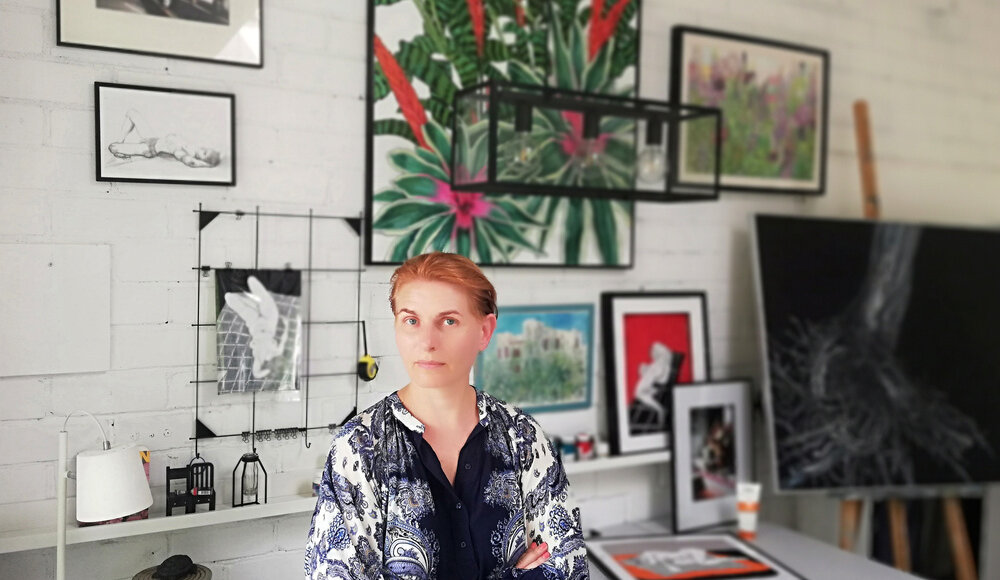


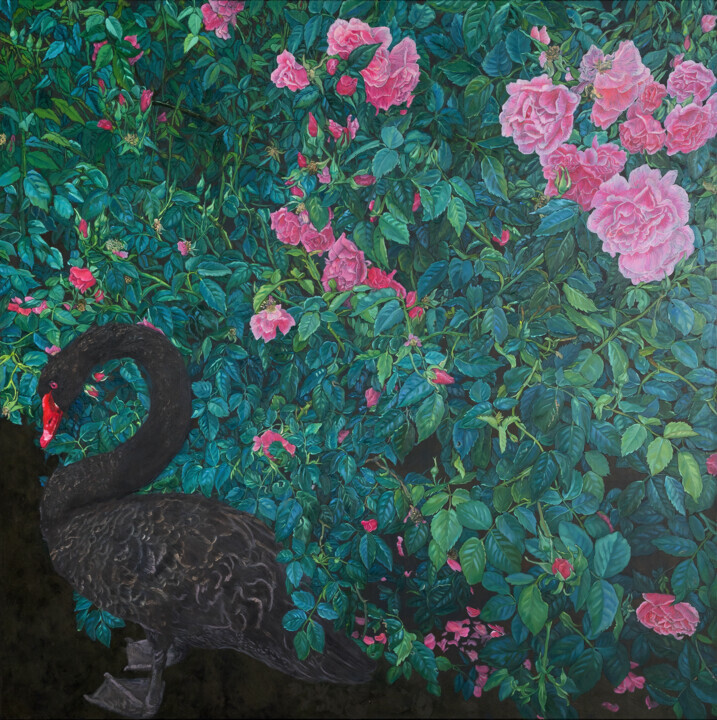


 Olimpia Gaia Martinelli
Olimpia Gaia Martinelli
